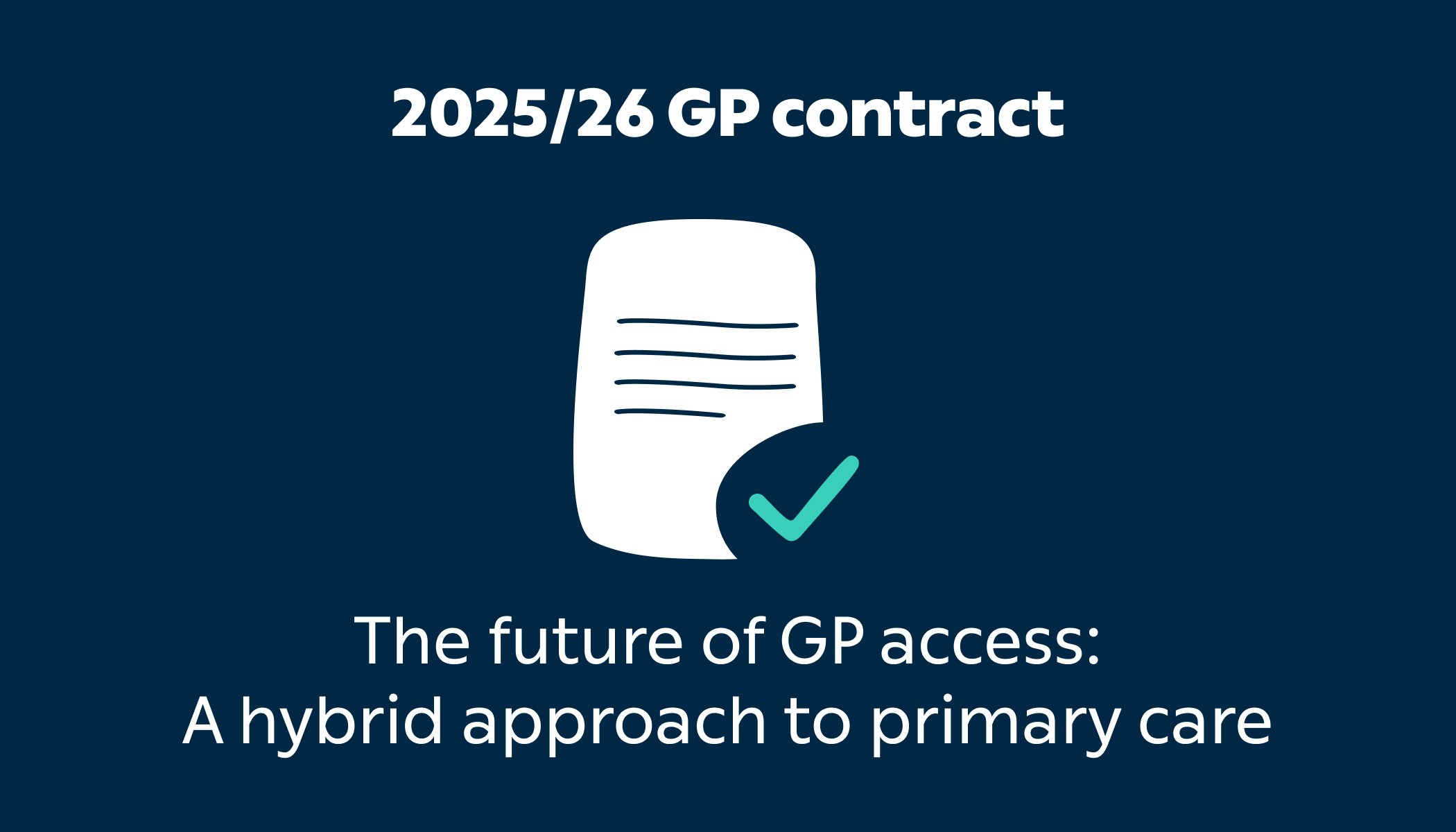In April, the BMA agreed to a new 2025/26 GP contract after months of intense negotiations - the first agreed deal in England in four years. While NHS England and the government hailed the agreement as a success, the BMA framed it as just ‘the first step on the road to recovery’ for general practice. But will it be enough to stabilise struggling GP practices?
The pressing need for change
Public expectations for the NHS are clear: easier access to GP appointments is now a top priority. The government has set its sights on three major shifts for healthcare -moving care from hospitals to the community, transitioning from analogue to digital, and shifting from sickness treatment to prevention. Achieving these ambitious goals requires a broader vision, concrete action, and sustained investment. General practice must also be made a more sustainable place to work.
The upcoming NHS 10-year plan must outline a clear vision for primary care, including the role of GP practices and Primary Care Networks (PCNs) in integrated neighbourhood teams. This will inevitably lead to difficult questions on how integrated services are contracted and how GPs are structured to deliver them. This will no doubt test the recently improved relationship between the government and the BMA.
Beyond capacity: the efficiency challenge in primary care
Primary care is caught in a paradox: demand for GP services is rising, yet the number of practices is declining. While many attribute this crisis to underfunding, the core issue extends beyond mere numbers, it’s about efficiency.
The World Economic Forum estimates that inefficiencies account for 20-30% of all healthcare spending. Meanwhile, the RCGP reports that GPs spend one-third of their time on administrative tasks. Outdated appointment systems and unnecessary in-person visits further clog the system, preventing patients from receiving timely care and being navigated effectively from one care instance to another.
By leveraging scalable technology alongside clinical expertise, we can streamline workflows, enhance productivity, and increase capacity - delivering better care without solely relying on expanding the GP workforce. This isn’t about replacing healthcare professionals with technology; it’s about empowering them to do more with less.
Smarter healthcare: a hybrid model of digital-physical care
One in 20 patients currently waits at least four weeks for a GP appointment, worsening health outcomes. Yet a significant portion of these appointments could be handled digitally, offloading the physical care system and freeing up GPs for more urgent cases.
The key to solving this challenge is recognising digital tools as a necessity, not an optional extra. A blended model of digital and in-person, face to face care is the real game-changer. Digital-first remote consultations for conditions that can be treated digitally, can ensure that patients receive the right level of care at the right time, without unnecessary delays or adding to further pressures in acute settings.
In Sweden, our ‘digi-physical’ model has revolutionised primary care. By seamlessly integrating GP-led digital consultations with more than 60 physical clinics, we’ve increased access for 60-80% of patients while preserving face-to-face capacity for those who need it most. In the UK, our partnerships with 400+ practices have demonstrated how scaling access via digital-first appointments benefits the entire healthcare system. By reducing unnecessary in-person visits and optimising clinician time, we can help create a more resilient NHS - cutting wait times and reducing costs by up to 40-50%.
Tackling the administrative burden
A recent BMA survey found that seven in 10 trainee GPs are experiencing burnout and stress. The profession is at breaking point, with the average GP now responsible for over 2,300 patients. That’s a 16% increase since 2015.
Yet, despite overwhelming demand, many practices still rely on outdated phone-based appointment booking systems. This contributes to the dreaded 8AM phone scramble, leading to long wait times and an inequitable system where those who can wait on hold the longest secure appointments first.
Our research reveals that over a quarter (27%) of the public have visited A&E because they couldn’t get a GP appointment in time. This backlog isn’t just inefficient, it directly impacts patient health outcomes.
Reimagining primary care for the future
In an overstretched system, a smarter, more integrated ‘digi-physical’ model ensures that resources are allocated where they’re needed most. Digital when needed, physical when necessary.
Patients benefit from faster, more accessible care, while clinicians benefit from fewer administrative burdens and more time to focus on their core mission: treating patients. Every efficiency gained strengthens the NHS and ensures long-term sustainability through a more resilient workforce.
Real-world ompact: a case study
Stephen Bates, Primary Care Network Digital & Transformation Manager at Waterside Health Network PCN, explains how more than 400,000 patients across Devon and Southampton PCNs are already benefiting from improved access to GP services through digital consultations:
“Combining digital appointments with our surgery and telephone options gives our patients more choice in how and when they access care. This enables us to prioritise patient needs, reduce pressure on A&E, and free up capacity for face-to-face appointments. Digital consultations have long been part of our model, providing access to those who struggle to travel or prefer virtual care. The Livi team’s swift setup and high standard of care have impressed us, ensuring patients receive seamless, reliable support.”
The path forward
By embracing a hybrid care model, we can redefine primary care. The future isn’t about choosing between digital or physical care, it’s about integrating both for maximum efficiency and accessibility.
If we continue chasing more GPs without fixing inefficiencies, we’ll remain stuck in the same cycle. The answer isn’t just more doctors. It’s a smarter, more resilient system that lets them focus on what truly matters: delivering quality patient care.
Dr Tom Davis, Country Manager and Medical Director, Kry, Europe’s leading digital first healthcare provider and known as Livi in the UK.


